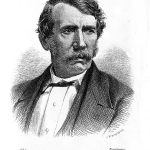 As the David Livingstone Bicentenary draws to a close, the focus shifts from celebration to the enduring impact this historic initiative will leave behind. The Bicentenary was not just about honoring the life and achievements of Dr. David Livingstone; it was also about building a foundation for future generations, ensuring that his legacy continues to inspire and uplift communities in Zambia and beyond.
As the David Livingstone Bicentenary draws to a close, the focus shifts from celebration to the enduring impact this historic initiative will leave behind. The Bicentenary was not just about honoring the life and achievements of Dr. David Livingstone; it was also about building a foundation for future generations, ensuring that his legacy continues to inspire and uplift communities in Zambia and beyond.
 A key aspect of this legacy is the strengthening of ties between Scotland and Zambia. The Bicentenary Initiative fostered numerous cultural, educational, and medical exchanges, creating a bridge between the two nations that will endure long after the events of 2013. These partnerships have opened doors for ongoing collaboration, particularly in areas such as education, healthcare, and community development.
A key aspect of this legacy is the strengthening of ties between Scotland and Zambia. The Bicentenary Initiative fostered numerous cultural, educational, and medical exchanges, creating a bridge between the two nations that will endure long after the events of 2013. These partnerships have opened doors for ongoing collaboration, particularly in areas such as education, healthcare, and community development.
One of the most tangible outcomes of the initiative is the support for educational projects that will benefit Zambian youth. New schools, such as the one being constructed in Chama through the Anglican Street Children’s Programme, are a direct result of the connections made during the Bicentenary. These institutions will provide essential education and opportunities for children in remote and underserved areas, helping to break the cycle of poverty and inequality.
The Bicentenary also highlighted the ongoing fight against modern slavery, a cause that was central to Dr. Livingstone’s life work. Through awareness campaigns and partnerships with international organizations, the initiative has reinforced the global commitment to eradicating this scourge, ensuring that Livingstone’s legacy as an abolitionist remains relevant and powerful in today’s world.
 Cultural preservation and exchange were at the heart of the Bicentenary celebrations. Events such as the Livingstone International Cultural Arts Festival brought together artists, musicians, and performers from across Africa, creating a vibrant tapestry of shared heritage. These festivals have not only celebrated Africa’s rich cultural diversity but have also laid the groundwork for an annual tradition that will continue to draw visitors to Livingstone, contributing to the local economy and cultural understanding.
Cultural preservation and exchange were at the heart of the Bicentenary celebrations. Events such as the Livingstone International Cultural Arts Festival brought together artists, musicians, and performers from across Africa, creating a vibrant tapestry of shared heritage. These festivals have not only celebrated Africa’s rich cultural diversity but have also laid the groundwork for an annual tradition that will continue to draw visitors to Livingstone, contributing to the local economy and cultural understanding.
In addition to these community-based projects, the Bicentenary Initiative has also left a lasting impact on the global stage. The academic conferences, exhibitions, and media coverage generated by the initiative have reignited interest in Dr. Livingstone’s work, positioning him not only as a historical figure but as a continuing source of inspiration for those working in the fields of exploration, medicine, and human rights.
As we move forward, the challenge is to build on the momentum generated by the Bicentenary. The partnerships, projects, and initiatives born from this celebration must be nurtured and expanded, ensuring that they continue to grow and evolve. In doing so, the David Livingstone Bicentenary will leave behind not just memories of a year of celebration but a lasting legacy that will benefit communities in Zambia, Scotland, and beyond for many years to come.
Recent Comments